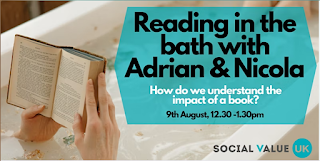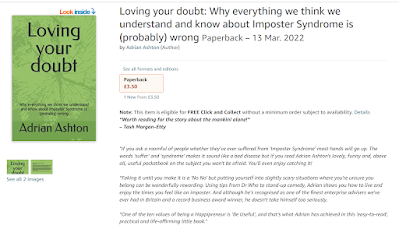So we're officially now in June - half way through 2025, and only 6 months to Christmas!
And tied to our collectively reaching this calendar milestone, seems to have been a recent small flurry of emails, posts on social media, etc from lots of people encouraging us to reflect on how well we've been smashing things for these first 6 months of 2025.
Except when I look back over my shoulder at what I've 'smashed' since January, I find myself at serious risk of giving up on the second half of this year:
- as part of marking the 20th anniversary of my business I wanted to publish my second book out (a retrospective of these first 2 decades). And although I've somehow managed to get the manuscript done, there's still the getting around to sorting out and completing final details that keeps eluding me...
- I wanted to get my website redesigned (I can't remember last time I did it); similarly as part of the porcelain anniversary this year. But I've not yet started that conversation with my web-hosters, SmartBear (but maybe by being so openly public it'll help me be more accountable?).
- I signed up to a few on-line/self-paced courses, which I've not even opened session 1 of yet (I'd hoped that paying actual cash for them would help me better follow through, but turns out not).
Which brings me to the crux of this post - it's easy to set ourselves the goal, and equally easy to miss it (kudos to Douglas Adams for the sound effect of when we do), and when we see it happening we get disheartened, and so are more likely to leave things unfinished. Worse, we're probably also less likely to even try to set a future ambition as a result.
But here's the trick that I'm using to keep my motivation going: what the hell have I been doing in these last 6 months which which meant that I missed achieving these otherwise very achievable things?
Professionally - the start of this year saw the end of a lot of funded business support programmes of various types; and I found myself being approached by several to help them make sure that they'd hit all their targets, had all the audit paperwork trails in place, and enterprises being supported by them were in the best possible health as they cut the (financial and support) cord after March. Anyone who's managed funded projects knows how hectic the last few months of any can be. Multiple that by 3 to 4...
Personally - my unpaid caring roles were notably ramping up (and continue to). I'm not going to share details here, because the stories about the immediate family members I support are theirs to share, not mine. But for context, the government's (and most carer support services') support for carers is based on the assumption that you only care 1 for person. Recent research is starting to come out that's helping to highlight the different and more stressful experiences of the 'sandwich carer' (someone who cares for 2 people who span different generations). I'm in the next camp of being the sole unpaid carer for 3 people. Added into this, I'm self-employed (which means I'm not recognised in law as a carer), so I'm needing to spin the plates of supporting them, keep my business running to help keep the rent paid, and all with no support for myself in these roles...
So maybe missing my targets is OK - because I can see that a lot of good stuff has still been happening in wider communities, and for those closest to me. And that only happened because I didn't stick to my goals and pursue them above all else, (and there's still another 6 months for me to catch up with them, right?).
Just as I shared earlier this year about giving up on a dream that I'd been chasing for 20 years, maybe we should also hold the goals we set for ourselves more lightly too - and try to recognise that sometimes not achieving them can serve a greater purpose?










